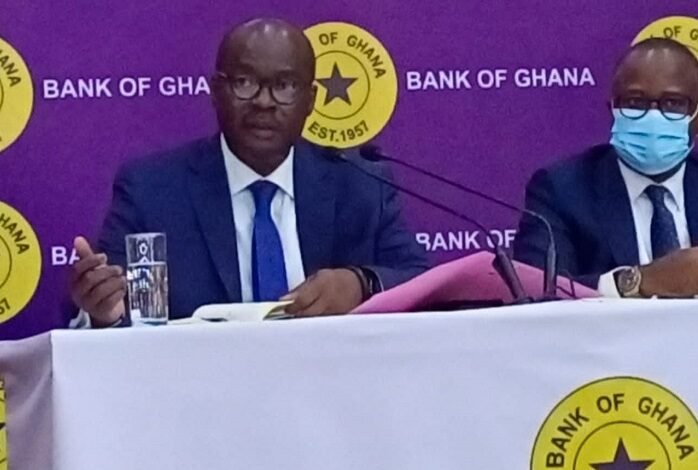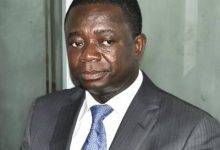
The Monetary Policy Committee (MPC) of the Bank of Ghana (BoG) has put a break on its monetary policy tightening and maintained the Monetary Policy Rate at 19.0 per cent on the back of slow growth and rising inflation.
Since November 2021 to May 2022 the MPC has increased the MPR by 550 basis points in a bid to control inflation.
MPR is the rate at which the Bank of Ghana borrows to the commercial banks in the country, which serve as reference for them to price their loans.
The Governor of the BoG, Dr Ernest Addison, who announced this in Accra yesterday after the 107th regular meeting of the MPC, said uncertainties in the global economy had heightened since the last MPC meeting in May 2022.
He said headline inflation in several advanced and emerging market economies had drifted further above set targets, amid escalating energy and food prices, as well as persistent and broadened supply chain bottlenecks.
“The global economy is now being threatened with historically high inflation and slowing growth, triggering recession concerns in many Bank of Ghana Monetary Policy Committee Press Release July 25, 2022 Advanced Economies. As a result, global growth forecast for 2022 has been downgraded and the IMF projects the world economy to grow by 3.6 percent as against the growth of 4.4 percent contained in its World Economic Outlook update of January 2022,”Dr Addison who chairs the MPCsaid.
Dr Addison indicated that global financing conditions had tightened further, reflecting monetary policy normalisation and expectations for further increases in policy rates, which had led to higher government bond yields, re-pricing of risky assets, and strengthening of the United States dollar.
The tighter global financing conditions was having financial impact on emerging and developing economies, including Ghana, as it made the cost of capital on the international market expensive and created reversal of capital flows.
In the local economy, Dr Addison said economic activity moderated in the first quarter, stressing that the latest estimates from the Ghana Statistical Service showed moderation in Gross Domestic Growth to 3.3 percent for the first quarter of 2022, compared with 3.6 percent in the same period of 2021, and 7.0 percent in the fourth quarter of 2021.
He said Non-oil GDP growth was 3.7 percent, down from 5.3 percent recorded for the comparative period in 2021, indicating that deceleration in growth was driven by slower activity in the agriculture and services sectors.
Dr Addison said the two inflation readings since the May MPC meeting pointed to continued broad-based upward pressure on prices, reflecting the pass-through effects of increases in ex-pump petroleum prices, transport costs, currency depreciation, and food prices.
Headline inflation increased markedly from 23.6 percent in April 2022 to 27.6 percent in May, and then further up to 29.8 percent in June and food inflation went up from 26.6 percent in April to 30.1 percent in May, and then to 30.7 percent in June 2022 and non-food inflation moved from 21.3 percent to 25.7 percent, and then to 29.1 percent in June 2022.
However, Dr Addison said the pace of month-on-month inflation has, however, slowed for the second consecutive time, stressing after increasing by 5.1 percent in April 2022, the monthly headline inflation slowed to 4.1 percent in May, and then to 3.0 percent in June.
“Based on the above assessments, the Committee was of the view that it will be appropriate to pause and observe the impact of the recent monetary policy measures already taken,” Dr Addison said.
BY KINGSLEY ASARE






